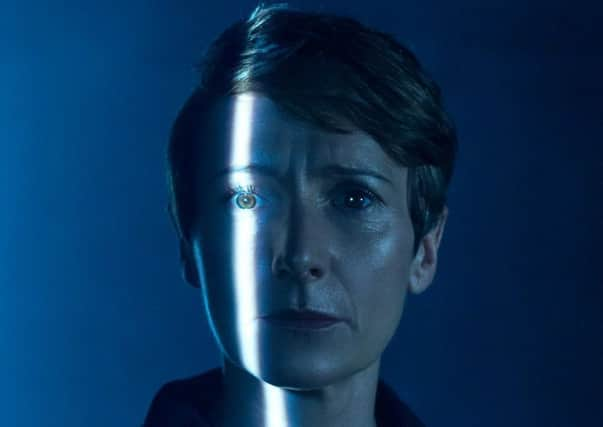Theatre: David Greig on adapting Solaris for the Lyceum


Say the word “Solaris” to any film fan of a certain age, and just one image is likely to come to mind: the great, seething, cloud-wreathed oceanic surface of the planet Solaris in Andrei Tarkovsky’s mighty 1972 film, based on the 1961 novel by Polish writer Stanislaw Lem. In the story, a spaceship from Earth is orbiting the planet, on a research mission; but the crew have become so troubled that a psychologist, Kris Kelvin, is sent out from Earth to help them, soon realising that the planet’s ocean has a strange power to connect with their minds, and to create images – perhaps more than images – of what it finds there. Written with the aim of restoring some heart and soul to a genre which Lem felt had become too preoccupied with technology and conquest, Solaris is possibly one of the greatest science fiction stories ever written; and from it, Tarkovsky made a film which is ranked by many amongst the finest of all time.
It’s not to re-create the genius of Tarkovsky’s version, though, that David Greig of the Lyceum in Edinburgh and Matthew Lutton of The Malthouse, Melbourne have come together to create their new stage version of Lem’s story, which premiered in Melbourne earlier this year, and opens at the Lyceum next week. Both agree that Tarkovsky may have had the last word on the lyrical and tragic aspects of Solaris; but returning to Lem’s novel, they found a deeply resonant and often witty story about a space mission from an earlier and more hopeful age now almost literally falling apart under unpredicted emotional pressures, and about the strange contradiction between the natural human yearning for connection, and the emotional danger and vulnerability that comes with that contact.
Advertisement
Hide Ad“It was Matthew who first approached me about the possibility of adapting Solaris,” says Greig, who has written the new stage version. “We had worked together on Picnic At Hanging Rock, which we co-produced back in 2017, and just as Matthew was using that story to explore ideas about dread and horror, so he was interested in using Solaris to explore science fiction as a genre. So I went back to the novel, which I’d never read, and what I found was this absolutely dramatic story about four people in a single, confined space, wrestling with these huge emotional themes about ghosts and love and memory, the past and present. It was as if there was a play already there.
“Unlike the Tarkovsky film, the book is also quite funny, in a sardonic, late-Soviet kind of way, and we found that it was fun to adapt it in ways that contradict the traditional image of science fiction, and look a bit like late 1950s Poland. There’s no way any stage show could ever compete with the science-fiction spectacle of films like the Star Wars series, and so on; all that tinfoil just doesn’t work any more. So we’ve gone in a different direction. There’s no point in adapting a story for the stage, after all, if you don’t try something different, and make it new,” adds Greig; and in making Solaris new, he and Lutton decided to take the step of making Kris, the psychologist at the heart of a story, a woman rather than a man.
“In any case, creating a new show for 2019, you wouldn’t have rooms full of male scientists with hardly any women, which was the norm back in the 1970s; and you wouldn’t, I hope, have a female character like the one in Lem’s story, who tends to be mysterious and quirky, and entirely seen from a male point of view. So as soon as I thought about it, I saw that we had to make the switch; and it’s also been interesting writing the very vulnerable character who appears on the ship as a man from Kris’s past, rather than a woman.”
In Edinburgh and London, Kris Kelvin will be played by Scottish- born actress Polly Frame. The cast also includes the filmed image of British-Australian film star Hugo Weaving – well known for appearances in The Matrix and Lord of the Rings – in the role of Kris’s old friend and mentor Gibarian; and as artistic director of the Lyceum, Greig is acutely aware of the need for every production to reach out towards the audience, and to connect with them through some point of familiarity, whether it’s a well-known cast member, a popular genre or title, or a story or theme which connects directly with their concerns.
“It’s been a steep learning curve for me,” says Greig. “Given the funding pressures, we have to make 75 per cent of our income at the box office; and one thing I’ve learned is that the idea of a classic theatre repertoire that people will automatically come and see doesn’t really work any more. Instead, for every show in the programme, you have to put together a kind of coalition of people who might be interested, and who will help to fill the theatre; and for every show, it’s different.
“So for Solaris, I hope there will be people who love the film, and are interested to see what we have done with the story; and people who have never heard of Solaris, but are simply attracted by a very powerful love-story set in a context that raises huge, very contemporary questions about the boundaries and power of human consciousness, and what happens when it makes contact with a different kind of intelligence. And with the world outside the theatre in a such chaos, there’s also, I suppose, a kind of devil-may-care feeling about it. It’s just – let’s put this whole crazy imaginary world on stage, and see what happens. After all, why not?”
Solaris is at the Lyceum Theatre, Edinburgh, from 12 September until 5 October